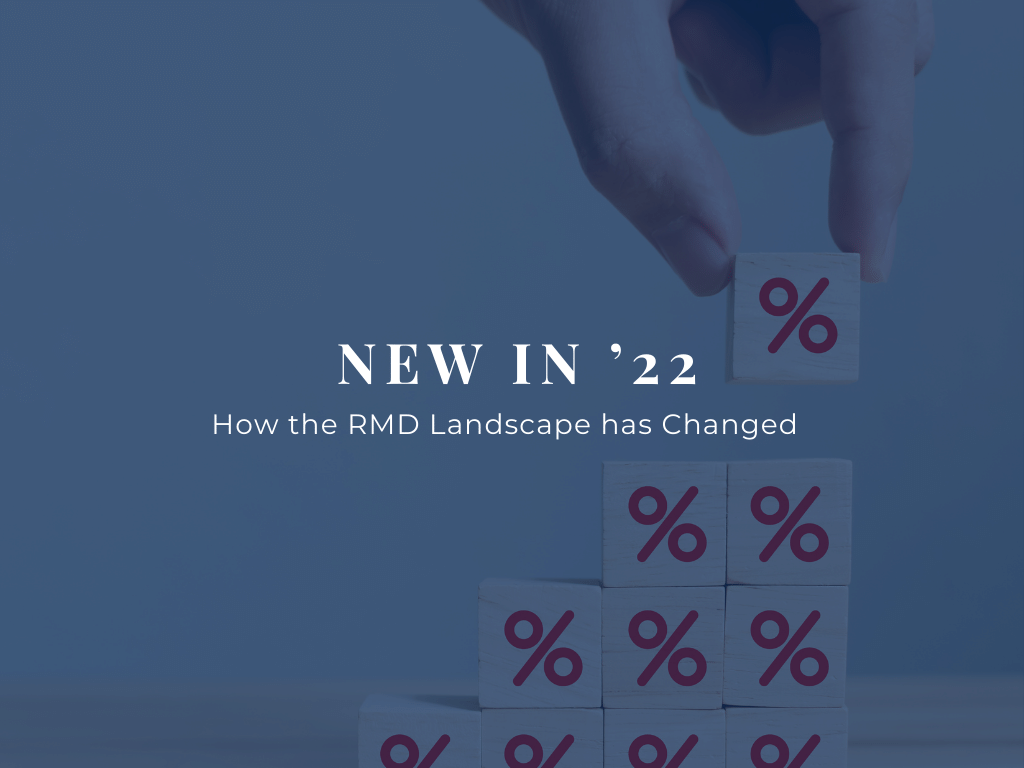
While not exactly front-page news, many of our readers should be aware of changes implemented for 2022 by the IRS for Required Minimum Distributions (RMDs). The primary change is related to updates to the life expectancy tables that the IRS uses to compute these RMDs.
For those new to this corner of the personal finance universe, an RMD is the minimum amount of money that a taxpayer must withdraw from a qualified retirement account each year in order to avoid adverse tax consequences. Virtually all defined contribution plans are affected, including traditional IRAs, (SEP) IRAs, and (SIMPLE) IRAs. Other accounts impacted include 401(k), 403(b), and 457 plan accounts. The date at which the RMD is triggered and the amount of the distribution are primarily determined by the age of the account holder.
In 2018 former President Trump directed the U.S. Treasury Department to better reflect increases to life expectancy for the American populace, since the existing tables had been in place for nearly twenty years.
This executive order brought about the changes that are taking place for 2022. Before we delve into this year’s differences, let’s review other relatively recent changes to RMDs.
New Rules and RMDs
Both the SECURE Act of December 2019 and the CARES Act that followed in March 2020 had a direct impact on the rules surrounding RMDs. These modifications were designed to offer some flexibility to both original account holders and beneficiaries of inherited accounts with RMDs.
The changes brought about by the SECURE Act allowed taxpayers to delay taking that first distribution from their qualified retirement account only if they reached 70 ½ in 2020 or later. Their new date for that first RMD would now be April 1st of the year they became 72. If they turned 70 ½ in 2019, they were stuck with the old rules that stated that the first RMD was still slated for April 1, 2020.
Three IRS Tables
Taxpayers are able to calculate the RMD for any given account using one of three different tables published by the IRS under Publication 590-B.
Taking the account balance of any given retirement account at the end of the prior calendar year and dividing it by the distribution period from one of three tables will yield the RMD.
An important note: The IRS will typically publish changes like those described here in The Federal Register. As of this writing, this has not yet occurred. So, we know that the tables listed below are changing, but no one yet knows by how much!
According to the IRS, taxpayers who are original owners of an IRA or other retirement account will generally fall into the following categories:
- Uniform Lifetime Table -for all unmarried IRA owners calculating their own withdrawals, married owners whose spouses aren’t more than 10 years younger, and married owners whose spouses aren’t the sole beneficiaries of their IRAs
- Table I (Single Life Expectancy) is used for beneficiaries who are not the spouse of the IRA owner
- Table II (Joint Life and Last Survivor Expectancy) is used for owners whose spouses are more than 10 years younger and are the IRA’s sole beneficiaries
Inherited Accounts
There is an important distinction between people who are considered to be the original owner of a qualified retirement account and those who have inherited an existing account from a deceased account holder. Differing RMD rules will apply, contingent on when the account holder dies.
1) For individuals who died before January 1, 2020:
- Beneficiaries of retirement accounts and IRAs can calculate RMDs using Table I above.
- When a qualified retirement plan is involved, the RMD rules are determined by a plan administrator. The RMD payout period can vary significantly, from as short as 5 years, to the full life expectancy of the beneficiary.
2) For individuals who died after December 31, 2019:
- Are you an eligible designated beneficiary?
- Surviving spouse
- Disabled
- Chronically ill
- Minor
- Someone not more than 10 years younger than the account holder
- This group of beneficiaries may receive their distributions over their own life expectancies, with minors required to take their distribution within 10 years of reaching age 18
- Designated beneficiaries not qualifying as an eligible designated beneficiary must withdraw the full account value within 10 years of the account holder’s death
- Non-designated beneficiaries have 5 years to deplete the account
Conclusion
Over the last few years, taxpayers have experienced changes to RMDs that are related to both COVID-19 relief and more recently, updates to the life expectancy tables that determine the level of the RMD. Even if you were comfortable previously with your RMD schedule, now could be a good time to meet with your financial advisor to revisit the topic. The rules have clearly become more complex and your advisor will be able to provide some clarity to the new rules and how they apply to your situation.
This information has been obtained by third party resources and is believed to be true as of the original date written, March 2022.
Additional Resources for RMDs:
Investopedia.com, "Required Minimum Distribution (RMD)"
AAII.com, "2022 Brings New Life Expectancy Tables for Calculating RMDs"
IRS.gov, "Retirement Plan and IRA Required Minimum Distributions FAQs"
IRS.gov, "Retirement Topics — Required Minimum Distributions (RMDs)"
Need a Retirement Advisor?
If you are currently looking for help with retirement planning, contact us. We are happy to schedule an introductory meeting at your convenience.


